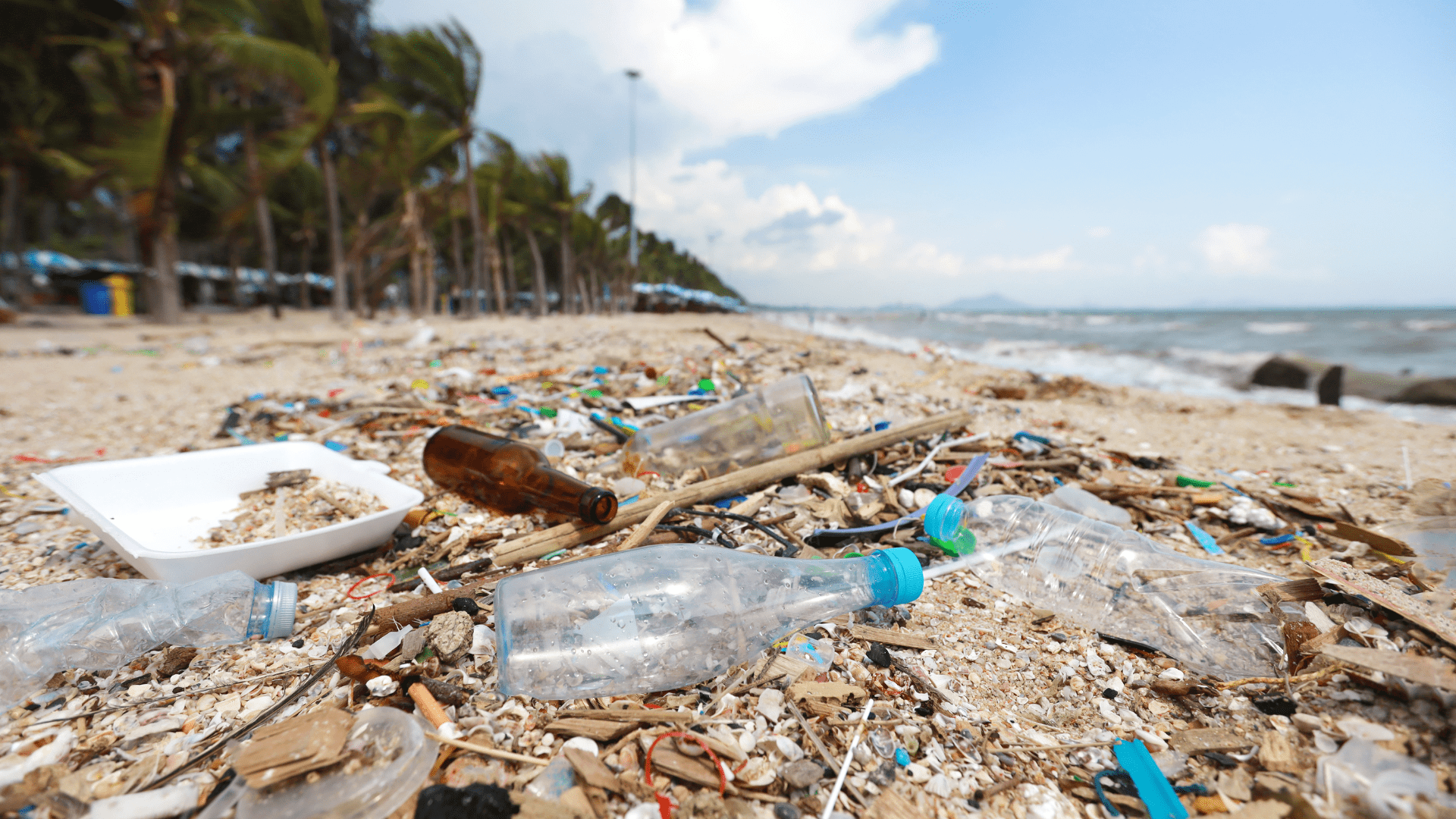CALL NOW FOR A FREE QUOTE 866.760.8194
WHY ARE OUR NATIONAL PARKS GETTING TRASHED?
What causes the problems with waste management in our national parks, what are its impacts, and how are individuals and federal agencies combating this growing problem?
It is no surprise that this perennial problem continues to be in the news. The average American generates over four pounds of trash per day, and 330 million people or more visit our national parks each year. The National Park Service manages almost 70 million pounds of waste annually.1 A tremendous amount of garbage ends up as litter in our national parks, and even more washes into beaches and waterways that are part of our network of federal lands.
The Challenges of Waste Management in Our National Parks
Litter in our national parks has always been an issue. Visitor education, recycling separation, and technological improvements like GPS container reporting and commercial garbage disposal equipment help to manage the almost 100 million pounds of garbage the Park Service manages nationwide.
Some of the challenges they face include:
- Marine trash cleanup efforts ongoing since 2015, which remove tons of trash from national park beaches annually, adding significantly to the volume of litter requiring disposal each year.2
- The government shutdown of 2019—parks remained open with very limited or no waste management staff to manage sanitation facilities or supervise park usage.3
- The COVID-19 pandemic of 2020, which saw dramatic increases in park visitors while services were curtailed or insufficient to meet the demand.4
- Ongoing issues with displaced individuals or first-time campers who are unaware of proper sanitation procedures or do not have the equipment and resources to comply.
Protecting Our National Treasures
The National Park Service has partnered with commercial businesses with proof of concept improvements to this growing problem, including a zero landfill waste management concept. Three pilot parks are participating in the Don’t Feed the Landfills initiative, which are:1
- Denali National Park
- Grand Teton National Park
- Yosemite National Park
Building on the proof of concept in these parks, the Parks Service launched the National Concessions Visitor Waste Impact Study in 2020. These programs have led to a number of improvements, including:5
- Reducing food waste generation
- Composting at a commercial scale
- Conducting waste audits to identify opportunities
- Collecting data in a single system for analysis
Data collected led to the Parks Service installing 84 water refill stations in 11 national parks to drastically reduce the use of disposable water bottles.6 In a single year, the three national parks participating in the pilot programs have cut the amount of waste heading to landfills in half and kept at least 16 million pounds of solid waste from reaching local landfills.1
How Can the Tide of Trash Be Turned?
National park conservation efforts are part of the mandate of the National Parks Service, but we all share responsibility for our national resources. Taking steps to limit your footprint when you visit public lands, and even in your daily life, can help reduce the problem of litter in national parks, waterways, and forests.
Consider these tips as you strive to “leave no trace”:
- Always dispose of trash in an appropriate container, even when you are not at the park, to reduce blow-away litter, plastic bags, runaway balloons, and other waste entering oceans, lakes, or rivers.
- Reduce or eliminate your use of single use plastics like disposable water bottles, straws, or snack packages.
- Bring reusable containers with you to the park, and pack out what you bring in. Resist the urge to decorate, especially with mylar or plastic.
- Participate in the efforts of food concession sites by properly sorting recyclables and compostable items into the appropriate containers.
- Purchase and use biodegradable soaps, shampoos, and toiletries when camping and properly recycle the containers.
- Report misuse of public lands, including household garbage dumps, unlawful fires, hazardous chemical disposal, or RV waste dumping.
Working Together to Limit Litter
Our combined efforts can restore the natural beauty and sustainability of our national parks and preserve the sanctity of these destinations for generations to come. At Global Trash Solutions, we support these efforts to properly manage waste in national parks by:
- Creating educational waste management resources
- Performing waste stream audits for local business partners
- Supporting technological innovation in commercial waste disposal equipment
- Promoting responsible disposal practices nationwide
GTS helps small businesses and large franchises nationwide with reducing waste and capturing the value of recyclables. Our waste consultants can help you improve your waste management processes and implement green initiatives that can save you money on the bottom line. Before you look for “commercial garbage disposal equipment near me” or “trash compactor rental near me,” contact us for a free consultation. Your business has the opportunity to partner with a trusted national leader in responsible commercial waste management.
Sources:
- https://www.npca.org/resources/3243-working-to-significantly-reduce-waste-at-national-parks
- https://www.npca.org/articles/1632-garbage-in-garbage-out
- https://www.usatoday.com/story/news/nation/2019/01/01/free-all-national-parks-overrun-garbage-other-bad-behavior/2456757002/
- https://time.com/5869788/national-parks-covid-19/
- https://www.nps.gov/subjects/sustainability/waste-reduction.htm
- https://www.nationalparks.org/explore/programs/reducing-waste-sent-to-landfills
Recent Post
Is Hiring a Waste Consultant Right for Your Business?
Managing waste and recycling needs poses a distinct hurdle for businesses focused on…
Read More >Understanding Scope 3 Emissions
Scope 3 emissions are an important component of a company’s total greenhouse gas…
Read More >
